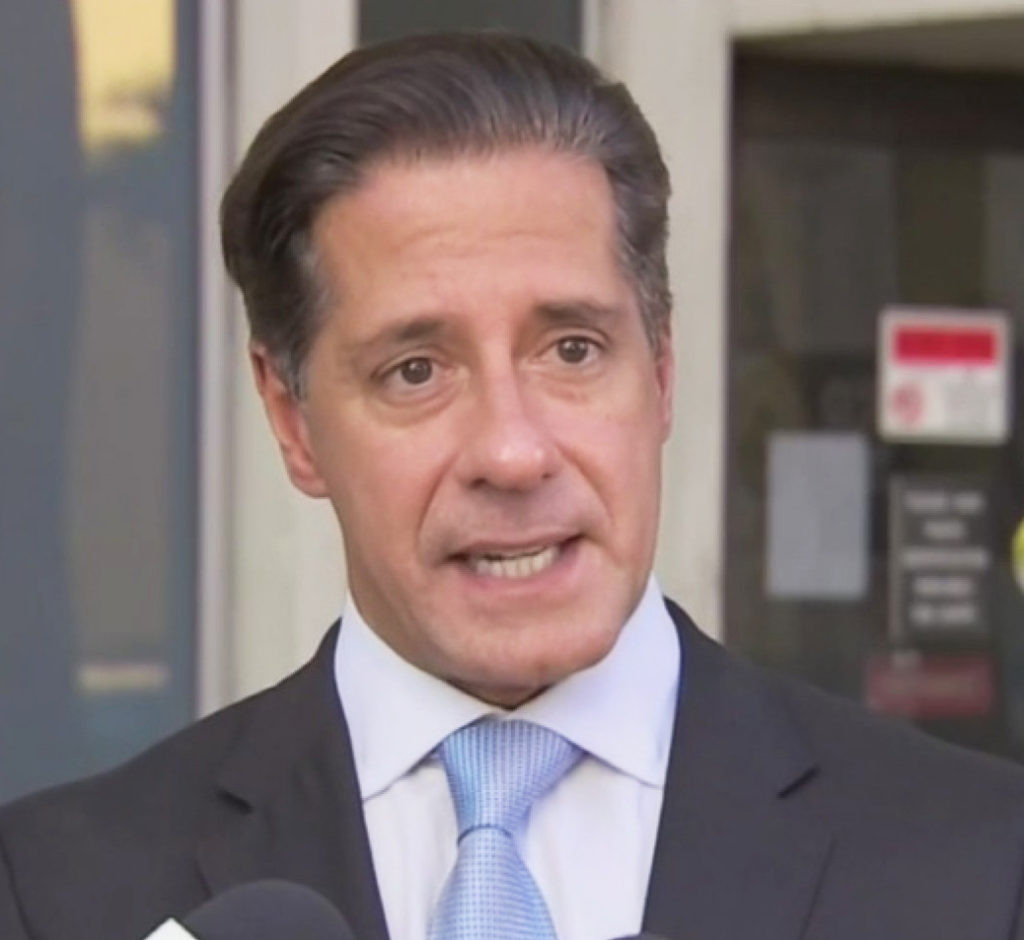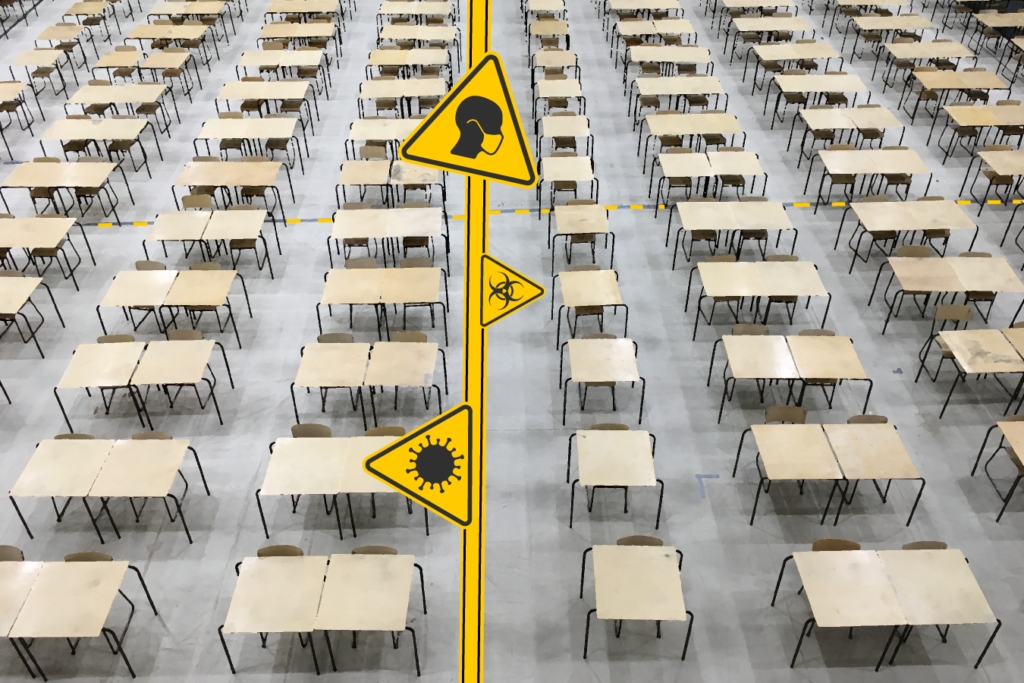Education: A Pending Subject
Parents concerned about Back to School
By: Diana Bello Aristizábal
August 24th is the scheduled date for the start of the 2020-2021 school year. Still, at this point the picture remains unclear. Miami-Dade County parents don’t know for sure what the next school year will look like or whether or not schools will reopen pending the evolution of the coronavirus.
In early July, it was said that schools would only open if the county enters phase 2 of the coronavirus (i.e., 14 continuous days of declining hospitalizations and new positive cases of COVID-19), a position that School Superintendent Alberto Carvalho confirmed stating in recent days that the county “is not ready to reopen schools” with the current numbers.
![]()

It was also said that the ideal environment to reopen schools would require that less than 10% of the people who get tested in the county are diagnosed with COVID-19, an scenario that today is not met.
The situation becomes even more uncertain when you consider that about 40% of minors who have been tested in Miami-Dade for the coronavirus have tested positive, according to the Florida Department of Health.
In the face of this and amid an onslaught of news that bombards parents every day, most are on the brink regarding the reopening of schools, especially taking into account that Miami-Dade is one of the most hit counties within Florida, a state recognized recently as the epicenter of the coronavirus in the country.
The neighboring counties are also in the same dilemma, although they have already begin to announce their preliminary plans. Palm Beach, for example, already decided to start the school year with an online education, while in Broward the superintendent said that for now he only considers the distance learning option.
But in the midst of so much uncertainty, what it is in fact clear is the position that parents took on the instructional models proposed last July 1, when the school board unanimously approved the school district reopening plan, that they evaluated through a public survey that closed on July 15.
In the survey, which was responded by 200,000 parents, each family selected their preference over two instructional models. The first one is on-Campus learning that includes the option of attending classes five days a week or a hybrid model. According to School Superintendent Alberto Carvalho, 52 percent of parents chose this model.
In contrast, about 48 percent said they wanted the distance learning model provided by the district known as My School Online.
On the percentage of students who would withdraw from the school system to opt for homeschooling or a virtual-only program, and regarding the new reopening strategy the district will adopt in view of the recent survey, which will vary from school to school, before the closing of this issue nothing was announced.
But in the face of this fast-evolving scenario, what are parents thoughts and what models of instruction did they choose to live in this “new normal”? We spoke to some of them and these were their perceptions.
On-Campus learning: “My daughter seems more shy than usual”
For Maria Cardenas, principal of Fusion Academy in Downtown Dadeland, and for her husband, a police officer, sending their oldest daughter to school to start the first grade is the only option. “We will do it because we both work, but also because my daughter has suffered a lot by not socializing,” says Maria.
According to her, her daughter’s mood has gradually declined, as she shows disinterest in things, wants to watch television more than she should, is constantly in a bad mood, cries frequently and has had behavior regressions.
As the principal of a school that focuses on social emotional health as well as academics, she knows the damage that isolation can cause and considers that virtual environments are not a substitute for face-to-face interaction nor are they made for all children, although she is clear in saying that physical health is not less important.
Ivonne and Robert Cobas, who are parents to an 11-month-old girl and a five-year-old girl, are dealing with a similar situation. The oldest would enter Kindergarten and the Cobas have already chosen to send her to school.
“Our daughter is more shy than usual. By not socializing with other children, she has become much more timid,” explain her parents. They work, on average, between 9 and 12 hours a day and have meetings constantly.
For this reason, they are unable to choose the online education, since it would imply supervising their daughter on a regular basis resulting in several work interruptions. They also cannot assign this task to her grandparents, usually the primary caregivers of the girls, because none of them speak English.
But although both families have already made up their minds, each has a plan to minimize risks. Maria, for her part, is training her daughter in the use of the face mask and handwashing, and constantly talks to her about the importance of covering her face to protect her grandparents.
The Cobas, on the other hand, are aware that sending Isabella to school it will be a challenge, but are confident in her ability to follow instructions in a school environment.
About the reality of many parents of having to send their children to class, a school teacher, who chose to remain anonymous, recommends guardians not to wait until the beginning of the school year to speak to their children about safety rules.
“Doing so implies leaving one more task to teachers who would have to be on top of those kids that fail to follow instructions such as wearing a mask.”
 Miami-Dade’s My School Online: “My children don’t need to be part of an experiment”
Miami-Dade’s My School Online: “My children don’t need to be part of an experiment”
Rosangela Kirilauscas, owner of a real estate agency, chose My School Online for her two oldest children. Her main motivation is that she doesn’t want her kids to be away from their grandparents as they would have been if she had chosen the on-Campus alternative at the risk of making them sick.
She is also concerned about the mixed messages spread by politicians. “One says one thing and the other contradicts it. Meanwhile, the number of cases continues to grow and it is not clear how they will guarantee the safety of children.”
Rosangela did not hesitate to choose the distance learning model provided by the school, since she learned to manage online environments back when classes were canceled in March. By then, the education offered had many shortcomings mainly because there was no time to structure something better.
However, many consider that in August the virtual model will be very different. “As a teacher, I know that schools are striving to offer an improved system,” says the county educator.
She also chose the district’s online program because she doesn’t want her children “to be part of an experiment.” In her case, the kids’s point of view about the new back to school plan had a lot to do with her decision.
When they learned that a face to face education amid the pandemic would mean wearing a mask almost all the time, maintaining social distance, and not sharing anything with other children, they themselves asked to stay home.
Homeschooling and online schools: “Now I can improve some areas of my daughter’s education”
Homeschooling is the kind of eduction that is guided solely by parents without schedule restrictions, with minimal state intervention and without having to follow an specific curriculum.
 It can be done in two ways: through an Umbrella School (private school) that serves to oversee the homeschooling of children or independently with some requirements to follow, such as keeping a portfolio and presenting an annual evaluation with student progress.
It can be done in two ways: through an Umbrella School (private school) that serves to oversee the homeschooling of children or independently with some requirements to follow, such as keeping a portfolio and presenting an annual evaluation with student progress.
Those who choose this path must send a letter of intent to the local school superintendent stating the anniversary date of the homeschooling program. Among its points of interest is that parents can create the diploma themselves and is valid to enter any college program in Florida.
Catalina Leibowitz, mother of a 12-year-old girl, will choose this independent study program for the upcoming school year because she wants to use the pandemic as an excuse to strengthen some areas of interest of her daughter, such as writing essays, which is hard to accomplish in the traditional model of education.
For Jennifer Bogk, a mother of three girls who have always been homeschooled and an advisor of parents interested in choosing this path through her ‘Sparking Wonder’ business, homeschooling is ideal for kindergarten, first and second grade children who need more guidance from their parents and may result affected by prolonged exposure to virtual environments, while online schools may be a good fit for older children.
Virtual instruction programs, specifically speaking of those offered only under that modality but that are from the district, such as Florida Virtual School or Miami-Dade Online Academy, differ from homeschooling in that they have a platform through which the student can access a curriculum and be guided by a teacher.
“I recommend them for children who don’t need as much supervision. It offers the same curriculum that regular public schools have, so returning to the traditional system after the pandemic is over would be easier,” says Bogk.
This type of education worked perfectly for Tatiana Valencia, mother of a teenage actor, who enrolled her son in Florida Virtual School during middle school, because her son’s work schedules were not compatible with face-to-face education.
However, she explains this is not a program for everyone nor is it licensed for all life circumstances. “During the pandemic it is a good option due to social distancing, but I do not suggest it to children who lack discipline or in normal circumstances because I think that socializing is very important for the development of a child,” she points out.


I believe in opening it all up if the employees / staff want to BUT if the teacher’s think it is to soon , they want to wait a month more or longer well then it is their call as they KNOW what is best .
I and people like myself should have no input in this what so ever .
It should only be up to the teacher’s and most look to want to wait so hope they are able to win this battle .
Pingback: Miami-Dade County Public Schools Re-Opening Guide Now Available